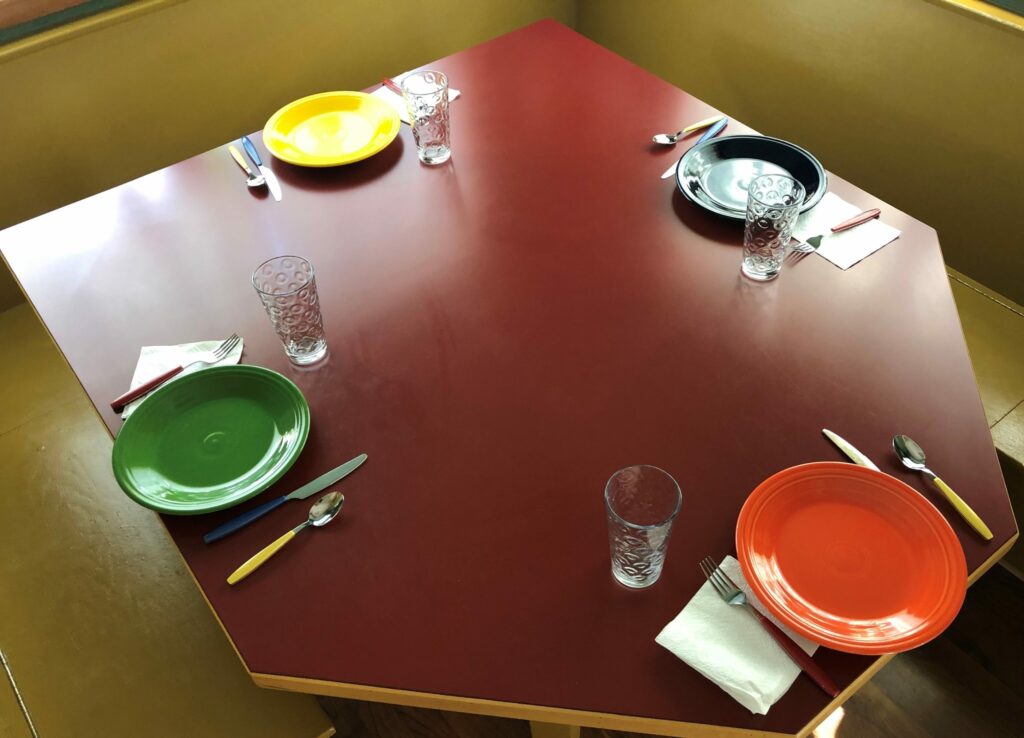
Why Bother Gathering Around the Table?

Why Bother Gathering Around the Table?
Unlike any other meal of the day, my family, all nine of us, gathered around the old oak claw foot table in the dining room for dinner. It was expected that we do so. This nightly event only had only one moment of silence: when Mom or Dad led us in a prayer of thanksgiving, “Bless us oh Lord, in these our gifts, for which we are about to receive, from thy bounty, through Christ our Lord. Amen.”
After that, mayhem happened to which my mother constantly rose from her chair to tend to. “Where’s the salt and pepper?” “Mom, Mark just spilled his milk.” “Is there any more bread?” Yet, despite the commotion around the evening meal, Mom’s enduring work of bringing us together had its lasting effects on my life.
Those Who Eat Together, Get Close Together
First of all, dinner was the expected and appointed time that we came together. Everyone knew that at 6:00 p.m. you’d better home with hands washed and seated at the table. Any other activities, including talking on the phone, doing homework, or riding your bike around the block took second place to something much more important: the family dinner.
Although Mom was not the best of cooks, she managed to feed us the basic nutritious Midwest cuisine: meat, potatoes, bread and canned or frozen vegetables. If we were lucky, there was also dessert, ice cream or pudding, but you’d better have your plate cleaned up first.
Eating dinner around the table was Mom’s training ground for teaching her seven offspring their table manners. If your elbow was on the table, Mom reminded you that it did not belong there by poking the offending appendage with her fork. If you chewed or talked with your mouth full, she gave you the “look” that made you change your way in a hurry. A piece of bread or your knife, never your fingers, were used to push that last bit of food onto your fork and napkins belonged on your lap. Finishing our meal, we never left the table without asking, “May I be excused?”
Dinner also had its set of special chores. I regularly set the table learning that the napkin and fork went on the left while the spoon and knife went on the right. The beverage glass was set just above the fork. Cleaning up after dinner, we were usually assigned the chore of dishwasher, dish dryer or the one who had to put the clean dishes away.
It wasn’t until I had a family of my own and continued the family dinner tradition that I reflected on why Mom had insisted on this routine. Without her lessons, I could never have taught my sons how to set the table, chew with their mouths closed and remind them that elbows did not belong on the table, albeit I did it without poking them with a fork. I never would have taught them how to cook or clean up a kitchen without remembering the important lessons I’d learned from my mom. Dinner and the chores surrounding it, had become for me as well as my offspring, the natural place to learn how to be civil and responsible.
Now, most nights our dinner table is set just for two. It is the place where my husband and I linger, converse and enjoy one another’s company. At least once a week though, we invite others to sit around our dinner table. Sharing a meal with friends feels like the most natural place to be civil and responsible to each other.
Why bother gathering around the dinner table? When we eat together we share not only the food, but the company and companionship of others.
New Release
